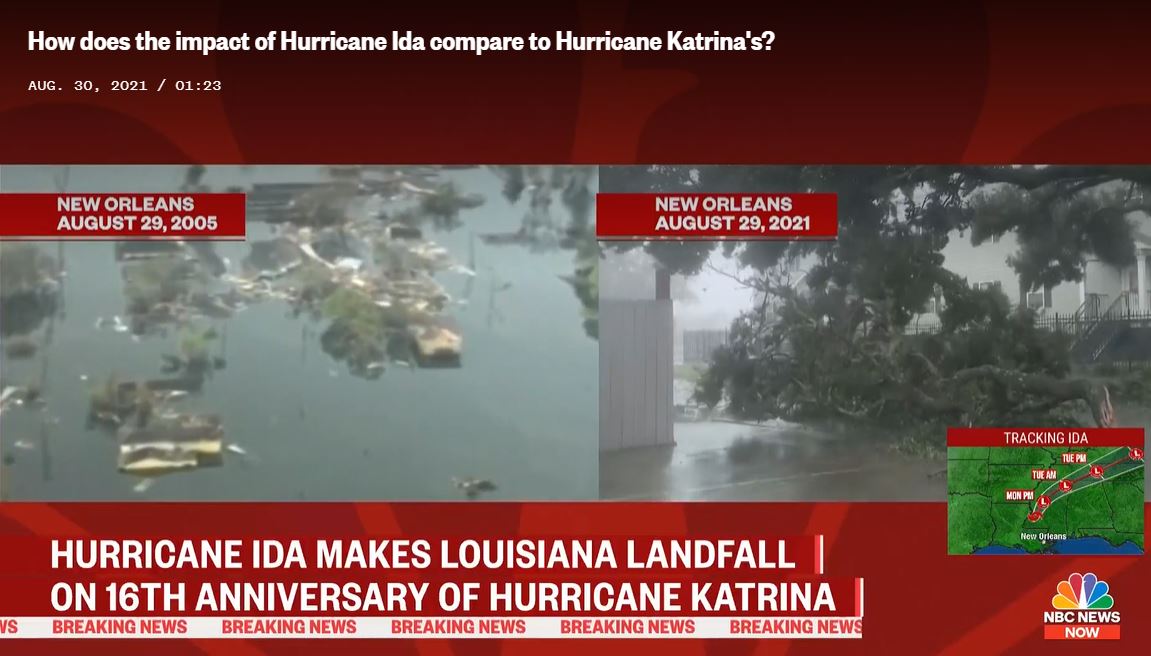
Dr. David Keellings was recently interviewed by NBC News about Hurricane Ida for their piece entitled How ‘rapid intensification’ fueled Hurricane Ida
Climate change is altering some of the atmospheric and ocean dynamics that power hurricanes. That doesn’t mean more hurricanes — but it does mean more dangerous ones.
Long before Hurricane Ida made landfall Sunday in southern Louisiana, climatologist David Keellings was already filled with dread.
As the storm passed over the western end of Cuba and moved over the Gulf of Mexico, Keellings, an assistant professor at the University of Florida, knew it would become fierce and unruly.
“I was saying, ‘Uh oh, it’s going to head over some really warm water,'” he said. “And it did.”
Once the storm began churning up the Gulf’s unusually warm water — 86 degrees at places, even at depths of more than 100 feet — things escalated quickly. Over the next 24 hours, the hurricane underwent a process known as rapid intensification, growing from a Category 1 to a Category 4 storm only shortly before it roared over the coastline.
“I was thinking: ‘Oh dear, this is happening too quickly and too close to land,'” Keellings said. “It’s going to have major impacts.”
Keellings and other scientists are paying close attention to Ida’s rapid intensification. Although hurricanes are unique systems driven by a complex interplay of atmospheric and ocean dynamics, experts say how Ida formed and how it behaves portend the types of hurricanes that are more likely because of climate change.
Read the full piece at NBC News.